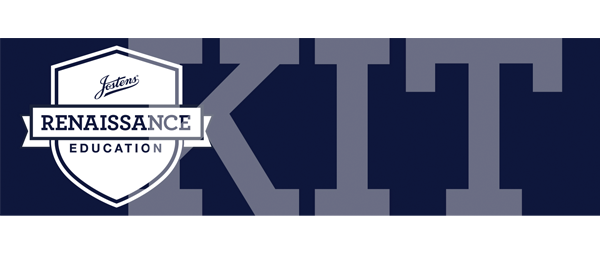
Turning Problems into Possibilities:
Unlock Students’ Problem-Solving Potential.
Students will encounter challenges and problems throughout their lives. What can we do to help them get better at solving problems? The information in the Educator Guide and activities in this kit will help teachers and students see problem solving as a skill and a process that can be learned and reinforced. For an additional resource, visit cmohedu.org for a sample lesson on "Overcoming Obstacles" from our friends at the Congressional Medal of Honor Foundation.
Turning Problems into Possibilities Educator Guide (20)
This twelve-page guide includes research insights to support the need for helping students think and talk about solving problems, several classroom activities, and advice on providing effective feedback. Click here to download the PDF.
Thinking Like Air Traffic Controllers Handout (20)
This sheet accompanies a classroom activity in the Educator Guide and describes three higher level thought processes (executive functions) used by air traffic controllers to manage their challenges, and gives relevant examples for students. Click here to download the PDF.
"I Am a Problem Solver/I Am My Own Coach" Bookmarks (400)
Students have the power and capability to solve problems on their own, and these bookmarks will keep these encouraging tips within easy reach.
Dealing with Systems Overload Handout (20)
This handout can be used by teachers or guidance counselors to help students work through problems. Click here to download the PDF.
How to Cultivate Students' Problem-Solving Skills Handout (20)
Parents, coaches and other adults are all in a position to help students become better problem solvers. These practical suggestions also help strengthen relationships, which is key to students' development and well-being. Click here to download the PDF.
"Don't Worry, You've Got This" Pencil (100)
Back by popular demand, these #2 pencils inspire confidence even as students take tests or complete assignments. Additional pencils are available at jostensrenaissance.com/store.
Educational Push Messages (1)
These messages can be used on Twitter or Facebook, or in school announcements, newsletters or other communication resources. Push messages for this month explore various aspects of solving problems. Click here to download the PDF for easy copying and pasting.
Meme: "Don't Worry. You've Got This."
Use on your email blasts, Facebook, your district/ school website or other social media sites to share this reinforcement with your entire school and community. Click here to download the JPG file.
"Yes, you really do need this class" Poster (1)
Remind your students that solving problems and other skills are needed for their future careers as well as current classroom success. Additional posters are available at jostensrenaissance.com/store, Item GROW-036.
NEED MORE? For additional items from the kit, contact your Jostens rep or email: renaissance@jostens.com.
One-Minute Message for Administrators: Turning Problems into Possibilities (February Kit Theme)
This Renaissance Kit focuses on six keys for unlocking students' problem-solving potential. These keys enhance learning and prepare young people to be successful in a rapidly changing world.
We've found that developing problem-solving skills is a critical need for students who will be entering a highly competitive global educational system and economy. They need these skills to thrive, and when students are engaged in solving their own problems, they learn better. They also learn to work on problems and challenges they see in their school and community, making them active contributors to the school's mission and culture. Furthermore, there are specific skills educators can model, teach, and encourage in students that will improve their ability to solve problems.
There's much educators can do. The most important is modeling a shared problem-solving approach with other administrators, teachers, staff, students, parents, and community members, and setting an expectation that everyone can help solve problems that they care about. Listen and coach, rather than resolving all problems for people who come to you. You can also go to other people with specific expertise to coach you in solving problems you face and need to resolve. This models an attitude of recognizing that everyone has something to contribute and everyone needs help from others to work through problems.

